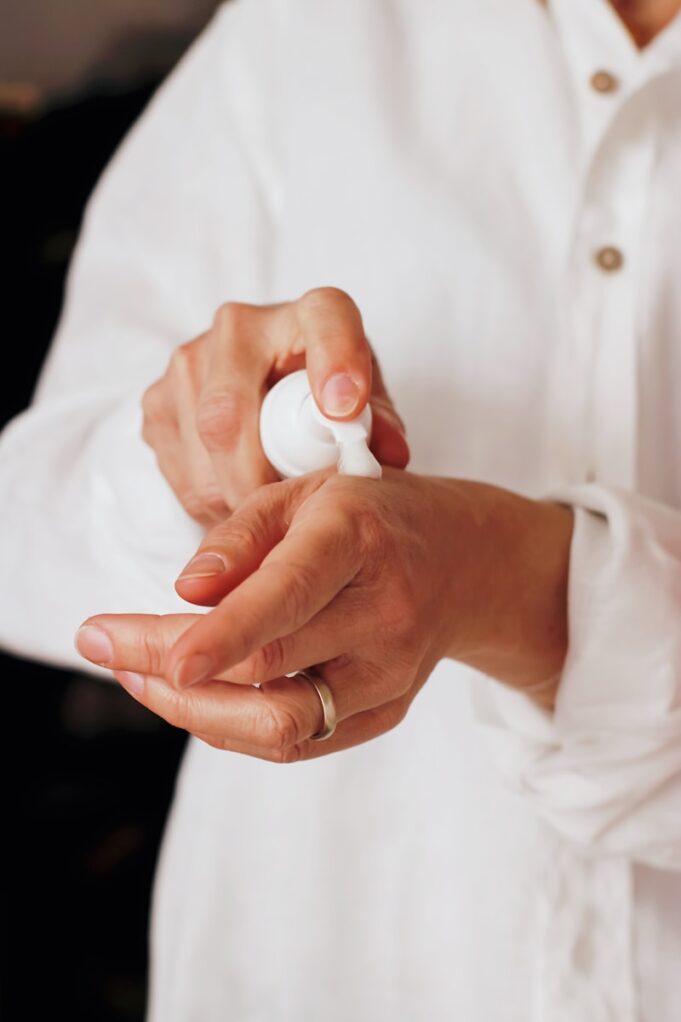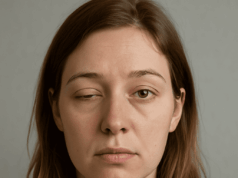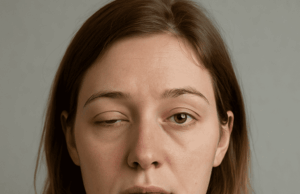When it comes to skincare and treatments, it’s safe to say that the average consumer is a lot savvier than in previous years. But, within an overly saturated market lies misinformation and deceit, disguised by clever marketing tactics.
Here, we speak exclusively to Dr Jinah Yoo, a Korean UK-trained consultant dermatologist, and founder of Dr Jinah Yoo Dermatology to clear up once and for all if Hyaluronic Acid really is a miracle worker, and if the ’10 Step Korean Skincare Routine’ is fact, or fabrication.
How long have you been working as a Dermatologist?
“I have been working in Dermatology now for almost a decade. I qualified as a doctor in 2008 and as a Consultant Dermatologist in 2013 in the UK.”
Why did you choose to go into Dermatology?
“Ever since starting my medical training, I knew I wanted to specialise in Dermatology. It isn’t all about anti-aging and acne, there are thousands of conditions that can impact the skin, and dermatology allows me to help my patients effectively by combining the use of both medical, and procedural treatments.
The skin is intrinsically linked to overall self-confidence, and Dermatology presents challenges that allow me to prescribe skincare solutions and use a range of specific treatments that will work in unison.”
One skin myth you would like to clear up once and for all.
“Yes. The ’10 Step Korean Skincare Routine’ – it doesn’t exist. Supposedly, those in Korea are using a glamourous ten-step routine that includes the use of daily exfoliation, skin essences, eye creams and sheet masks – this is false. This trend started off as a Western World marketing technique used to sell skincare products.
The truth is, those in Korea focus more on specific dermatology/aesthetic treatments to take care of their skin.”
Is topical skincare enough?
“No, I don’t believe it is. In fact, this is one of the key differences between here and Korea. Here, the industry pushes extravagant skincare routines to address skincare concerns; in Korea, skincare rarely forms part of the conversation during dermatology consultation. Dermatologists in Korea understand that skincare benefits are limited unless they are used correctly, and in conjunction with specific treatments to ensure they penetrate the skin as intended.”
How does Dermatology differ in Korea?
“The aesthetics industry is also a lot more highly advanced in Korea. They are decades ahead of the UK when it comes to combination treatments.
In the UK, hyaluronic acid skin boosters such as Profhilo are currently very popular, but in Korea these were among the ‘first generation’ of treatments, and they have since moved far beyond. Korean Dermatologists are now focusing on fourth generation treatments that use Salmon DNA, and Exosome injections which are far more advanced than stem cell, and PRP treatments and address a number of concerns at once, including reduced elasticity, dull skin tone, wrinkles and dry skin.
Another key difference is that in recent years, Korea has also moved away from injectable treatments, and more towards lasers and other skin booster treatments. In the UK, injectables still very much dominate the market.”
Why do you think the UK is so far behind?
“Honestly, I think it all comes down to training and regulations. In Korea, they are very strict about who can legally perform skin treatments, only licenced doctors are permitted to use injectables or laser treatments on patients, and it forms part of their early training which allows for advancement and modification. Here, we have a more standardised protocol because of therapists being at different levels. Dermatologists in the UK must seek and undergo separate training for lasers etc. as it is not taught as part of the standard dermatology training.
Long-term, this heavily impacts the overall efficacy of combination treatments, as different treatments work differently together, and sometimes we have to adapt to achieve the best results.”
What is your favourite treatment to perform?
“That is a hard question, I enjoy a lot of things for different reasons. At the moment, I am enjoying using the Lutronic laseMD ultra – which is a gentle resurfacing laser that treats the deeper layers of skin to boost overall skin radiance. As this treatment does not require needles, there is minimal downtime required, and it allows me to use Cytocare 532 topically afterwards which can be absorbed through microchannels created by the laser to really boost the results and overall efficacy of the treatment. My patients have been incredibly happy with the results after one treatment, but I recommend 3-5 sessions to achieve the best results.”
Is there any specific skincare that you recommend for daily use?
“Yes, the first thing is a good broad-spectrum SPF. Environmental damage, UVA and UVB rays from the sun can severely damage both the upper and deeper layers of skin causing irritation, pigmentation, rapid aging, melasma and skin cancers. SPF should be used every day, regardless of the weather, and for those that suffer with pigmentation, I recommend using a tinted SPF.
Alongside SPF, I highly recommend using Vitamin C, which is a very powerful antioxidant that can help boost the efficacy of SPF, address concerns such as pigmentation, and brighten the skin.
I also recommend the use of Retinol in the evening to help encourage healthy cell turnover, and the use of a moisturiser to support overall moisture and protect the skin. Keep it simple, and effective.”
Does Hyaluronic Acid work topically?
“Again, this is a tough question to answer. Whilst it feels nice on the skin, how effective it is topically, really depends on the molecular weight. Larger molecules will not penetrate the skin, and skincare brands very rarely disclose information like this. In my experience, HA works best when it is injected into the deeper layers of skin.”
What question do you wish more patients would ask?
“I wish more people would ask how lasers, and other medical treatments work. I think in the UK there is a real lack of understanding when it comes to the specifics of how lasers work within skincare. The production and use of them is largely driven by clinics, so patients don’t always understand how they can really complement skin treatments.”
Does diet really impact the skin?
“Another difficult one. There is no real data that shows the exact link between diet, and skin health, but there are certain conditions that are impacted by diet. Those that suffer from conditions such as Rosacea should avoid consuming too much alcohol as it is known to worsen the condition.
I advise my patients to eat a healthy diet and drink plenty of water to support overall health which will in turn help to support the skin.
What are the best ingredients for acne?
When I am treating acne in my patients, I focus on the use of Tretinoin or Salicylic Acid primarily to help clear out the pores and help with gentle exfoliation. However, both ingredients can cause irritation and purging, so I always start my patients off at a lower strength and build up from there.”













